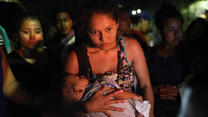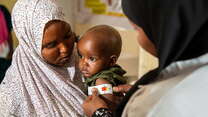
In this article:
- Refugees work and pay taxes
- How you can help
- Donate
The United States has long been a global leader in providing refuge to those fleeing persecution, war, and violence. While refugee resettlement is fundamentally a humanitarian effort, decades of data show that refugees also make significant contributions to the U.S. economy. In fact, many of the innovations we take for granted today—like the iPhone, the internet, and other groundbreaking technologies—are the result of work done by refugees or their descendants.
Refugees bring fresh perspectives, resilience, and ingenuity that benefit all of us, proving that when we welcome those in need, we also welcome their new ideas, businesses, and breakthroughs.
Editor's Note: On January 20, 2025, an executive order suspended the U.S. Refugee Admissions Program (USRAP) indefinitely. Less than a month later, on February 25, 2025, a federal court overturned the halt to refugee resettlement. Shortly after, on February 26, 2025, the State Department officially terminated its contracts and cooperative agreements with resettlement agencies leaving families waiting to reunite in limbo. Despite these setbacks, the International Rescue Committee (IRC) remains steadfast in its mission to continue supporting clients who arrived prior to the USRAP suspension and provide critical services to the fullest extent possible.
Refugees are net contributors to the U.S. economy
A 2024 study by the U.S. Department of Health and Human Services found that from 2005 to 2019, refugees and asylees generated a net fiscal benefit of $123.8 billion to the U.S. government. Over this 15-year period, refugees contributed $581 billion in tax revenue, outweighing the $457.2 billion in government expenditures on them during that period - and far exceeding the cost of the programs supporting them for their first few months in the country.
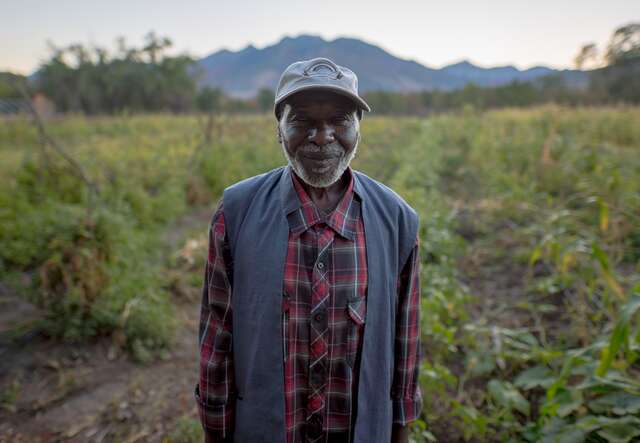
Young refugees can also contribute to the workforce development and the U.S. economy in the future; they just need support to continue their education. In Salt Lake City, the IRC and Cotopaxi have partnered in the College and Career Readiness program, which focuses on working with resettled youth ages 15–24 to develop foundational educational, life, and social-emotional skills necessary for self-sufficiency and to have control over their future. This program provides youth participants with the information they need to make informed decisions about post-secondary education and supports them in enrolling in a program.
"At Cotopaxi, we believe that investing in young people—particularly those from refugee and immigrant communities—is essential to building a stronger, more vibrant economy. Through our partnership with the IRC, we've seen firsthand how empowering youth with education, resources, and opportunities not only transforms their futures but also strengthens the communities they call home. By supporting these critical programs, we can unlock the potential of the next generation and create a more connected and prosperous society." — Charlie Clark, Executive Director, Cotopaxi Foundation.
Refugees work, pay taxes, and achieve upward mobility
Refugees enter the workforce at high rates, often filling labor shortages in critical industries. According to a 2023 report, refugees in the U.S. earned a collective $93.6 billion in household income in 2019 alone. That same year, they paid $25 billion in taxes, including $16.2 billion in federal taxes and $8.7 billion in state and local taxes.
Over time, their earnings increase significantly. While refugees who have been in the U.S. for five years or less earn a median household income of $30,500, those who have been in the country for at least 20 years reach a median income of $71,400—exceeding the national median of $67,100. This upward mobility highlights their ability to integrate successfully into the economy and contribute meaningfully to their communities.
For years, Marriott International has partnered with the IRC to help prepare refugees for meaningful careers. Through the Hospitality Link program, Marriott has supported the IRC in training over 1,000 refugees in workforce development and hospitality skills, while working together to place refugees into employment, including at Marriott hotels.
“At Marriott International, we welcome all—it’s part of our DNA. Fostering a welcoming environment where everyone belongs and has access to opportunity has been a part of how we do business from the beginning and will continue to guide how we serve our world in the future.” — Tricia Primrose, Executive Vice President and Chief Global Communications & Public Affairs Officer, Marriott International.
Refugees are more likely to become entrepreneurs
Entrepreneurship is a key driver of economic growth, and refugees excel in this area. In 2019, 13% of refugees in the U.S. were entrepreneurs, surpassing the 11.7% rate among non-refugee immigrants and the 9% rate among U.S.-born citizens. This amounted to nearly 188,000 refugee-owned businesses across the country.
Their businesses range from restaurants and retail shops to technology firms and transportation services. In cities like Buffalo, NY, and Fargo, ND, refugee entrepreneurs have revitalized entire neighborhoods, turning abandoned storefronts into thriving small businesses that create jobs and boost local economies.
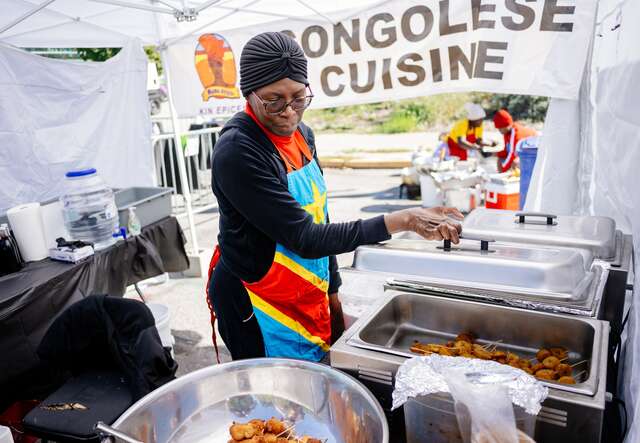
Refugees fill key workforce gaps
Many industries in the U.S. face labor shortages, particularly in manufacturing, health care, and transportation. Refugees help meet this demand. Companies like Cotopaxi and Marriott have actively supported the integration of refugees into the labor market, recognizing their strong work ethic and reliability.
A growing aging population in the U.S. also underscores the importance of a steady, younger workforce. While 77.7% of refugees and immigrants are of working age (16-64), only 61.3% of the U.S.-born population falls into this category. By joining the workforce, refugees help sustain industries and contribute to Social Security and Medicare, ensuring these programs remain viable.
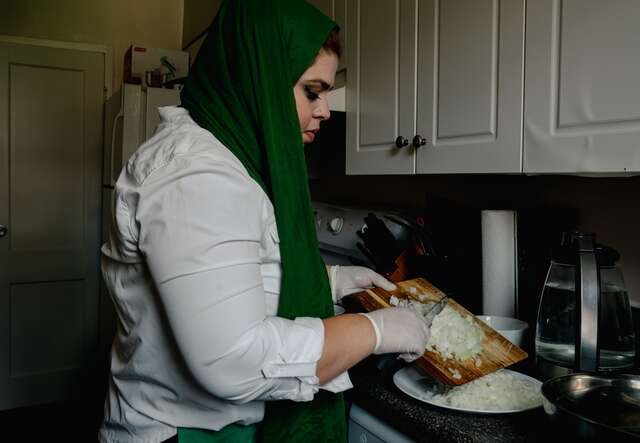
Refugees strengthen local and state economies
Refugees contribute to economic growth not only at the national level but also within states and cities. In 2019, refugees had a collective spending power of $68.6 billion, stimulating local businesses across the country. In California alone, refugees' spending power reached $20.7 billion, while in Texas, it was $5.4 billion.
Refugees make important tax contributions to many states. In 2019, the state and local taxes paid by refugees exceeded $100 million in each of the 21 states, helping to support schools, roads, and public services.
How can I help?
Refugees are an asset to the U.S. economy, bringing a strong work ethic, entrepreneurial spirit, and contributions that revitalize industries and communities. Welcoming and supporting refugees isn't just humanitarian—it strengthens our economy.
With the January 20, 2025 suspension of the U.S. Refugee Admissions Program (USRAP) and subsequent termination of State Department contracts on February 26, 2025, your support is more critical than ever. There are a number of different ways to help:
Donate: Financial contributions are key for trusted organizations like the IRC to ensure we can continue providing essential services to refugee families already in the United States who are working to rebuild their lives and contribute to U.S. communities.
Get connected: Follow our Instagram, LinkedIn, Facebook, Bluesky and X accounts.
Stay informed: Learn more about the world’s most pressing crises and what the IRC is doing to help.
Take action: Join the IRC’s advocacy team as we fight for policies that deliver real change for the people we serve.
Volunteer: Your time and skills can help the IRC deliver a wide range of services. Consider joining one of our 29 U.S. local offices.
